The Dynamic Self in Psychoanalysis
Please note – this event is not hosted
by the Neuropsychoanalysis Association – for any questions
regarding registration please contact the organisers (see contact details below).
The Neuropsychoanalysis Study Group is an interdisciplinary group open to neurologists, neuropsychologists, neuroscientists, psychoanalysts, psychoanalytic psychotherapists, psychologists, mental health professionals, philosophers or psychiatrists with an interest in the area of mind and brain. The aim of the Group is to create an environment for interested parties to study and discuss how the insights of neuroscience and psychoanalysis can be synthesised towards a better understanding of mind and brain. The Group is part of an international network with this aim and reports on a regular basis to the International Neuropsychoanalysis Society. The Group also functions as a base for exchanging professional news, enhancing interdisciplinary careers and forming clinical and research collaborations. For more, see: https://npsa-association.org/
Format
Each meeting consists of a presentation of neuroscientific research or psychoanalytically-informed clinical work with neurological patients, followed by extensive discussion by the Group. There will also be educational sessions with an open panel format. To join the list, please contact neuropsaireland@gmail.com to apply with a minimum of 2-3 lines, indicating your discipline and nature of your interest. Suggestions about topics or format welcome.
Group leaders
Paul Moore, Psychoanalytic Psychotherapist
Aonghus Ryan, Clinical Psychologist
Barbara Fitzgerald, Psychoanalyst, Psychotherapist.
The Dynamic Self in Psychoanalysis
Presenter: Dr Rosa Spagnola, MD, Psychoanalyst, Neurologist & Psychiatrist
Discussant: Barbara Fitzgerald, Psychoanalyst,Psychotherapist
Chair: Paul Moore, Psychoanalytic Psychotherapist
In association with
The M.Sc. in Psychoanalytic Psychotherapy, Department of Psychiatry, School of Medicine, TCD.
and
The M.Phil. in Psychoanalytic Studies, School of Psychology, TCD.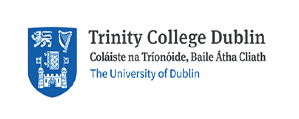 https://www.tcd.ie/medicine/psychiatry/postgraduate/psychoanalytic-psychotherapy/
https://www.tcd.ie/medicine/psychiatry/postgraduate/psychoanalytic-psychotherapy/
https://www.tcd.ie/courses/postgraduate/courses/psychoanalytic-studies-mphil–pgraddip/
2.30pm – 4pm (Irish time)
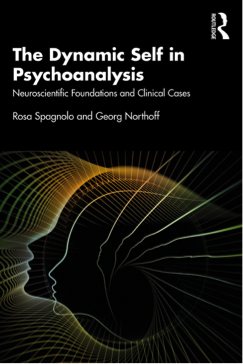 The study of the mind from a psychoanalytic perspective and the brain from neuroscience cannot take place without the mutual and dynamic relationship with the world and the environment. This relationship is essential for the definition of the Self as an inter-dependent entity characterised by its extended duration in time from past to future passing through present. In its own continuity-discontinuity, unity-multiplicity the Self represents the subjective glue that informs our existence and its underlying dynamics. Isn’t the existence of the Self anything but relational. What are the dynamics behind the complexity of the self? Is the Self unitary or multiple? How can we experience Self-continuity? These are just some of the question the authors tried to clarify over the chapters and the interesting and contemporary case histories. Departing from the basement, which is the space and time, the dynamics of the Self reveals its own configuration in its relation with body, others, world, creativity/madness and dreams through different clinical cases. Each case marks different self-knots that manifest different aspects of the self and the specific role of psychotherapy. Each vignette is a story of a Self that could not take place in time and in space. Traumatic experiences, compensatory strategies together with defense mechanisms do not allow the Self to be part of the world without leaving traces in the spontaneous activity of the brain. Our restless brain is characterized by its own spontaneous activity and its spatio-temporal structure that contains the information related to the self and its conscious-unconscious-processual memory. Thus, when the basis of our Self in its underlying world-brain relation is disrupted or even lost, non-integration of internal and external stimuli might occur leading to alterations in embodiment and, even further, the disruption of our Self’s relationship with the world and its continuity. This failure can thus be seen as a disconnection that threatens both the sense of subjectivity and intersubjectivity leading to different forms of psychopathology. Here psychoanalysis together with neuroscience takes the role of the transformative function and is seen as a vehicle to re-establish the necessary alignment for the continuity and the expansion of the self from private, to public, to world. The spatio-temporal approach represents a novel point of view on psychic processes and psychopathology. Indeed, psychotherapy unfolds in a shared time and space allowing the Self to experience what was lost or was not allowed in order to be part of the time of the world. Here, spatio-temporal psychotherapy is seen as a main road to the Self-consciousness through synchronous alignment. Now the Self can be “brought back to the world”.
The study of the mind from a psychoanalytic perspective and the brain from neuroscience cannot take place without the mutual and dynamic relationship with the world and the environment. This relationship is essential for the definition of the Self as an inter-dependent entity characterised by its extended duration in time from past to future passing through present. In its own continuity-discontinuity, unity-multiplicity the Self represents the subjective glue that informs our existence and its underlying dynamics. Isn’t the existence of the Self anything but relational. What are the dynamics behind the complexity of the self? Is the Self unitary or multiple? How can we experience Self-continuity? These are just some of the question the authors tried to clarify over the chapters and the interesting and contemporary case histories. Departing from the basement, which is the space and time, the dynamics of the Self reveals its own configuration in its relation with body, others, world, creativity/madness and dreams through different clinical cases. Each case marks different self-knots that manifest different aspects of the self and the specific role of psychotherapy. Each vignette is a story of a Self that could not take place in time and in space. Traumatic experiences, compensatory strategies together with defense mechanisms do not allow the Self to be part of the world without leaving traces in the spontaneous activity of the brain. Our restless brain is characterized by its own spontaneous activity and its spatio-temporal structure that contains the information related to the self and its conscious-unconscious-processual memory. Thus, when the basis of our Self in its underlying world-brain relation is disrupted or even lost, non-integration of internal and external stimuli might occur leading to alterations in embodiment and, even further, the disruption of our Self’s relationship with the world and its continuity. This failure can thus be seen as a disconnection that threatens both the sense of subjectivity and intersubjectivity leading to different forms of psychopathology. Here psychoanalysis together with neuroscience takes the role of the transformative function and is seen as a vehicle to re-establish the necessary alignment for the continuity and the expansion of the self from private, to public, to world. The spatio-temporal approach represents a novel point of view on psychic processes and psychopathology. Indeed, psychotherapy unfolds in a shared time and space allowing the Self to experience what was lost or was not allowed in order to be part of the time of the world. Here, spatio-temporal psychotherapy is seen as a main road to the Self-consciousness through synchronous alignment. Now the Self can be “brought back to the world”.
Bios
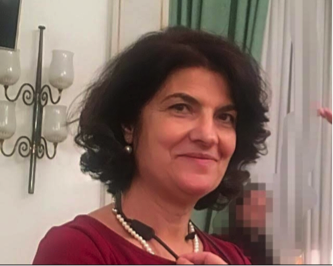 Rosa Spagnola, MD, is Neurologist and Psychiatrist for Children, Psychotherapist for Children and Adolescent, Psychoanalyst, Full Member of Italian Psychoanalytical Society (SPI), IPA Member, NPSA Member, IPD CO-Chair. She currently lives and works in Rome. She works at the Institute Filippo Smaldone, for the Rehabilitation of Deafness, Learning and Speech Disabilities, Developmental Disorders. She is primarily an expert in the treatment of Cognitive Delays, Autism, and Children Psychoses; she has been working for over 20 years at neuromotor and rare diseases in newborns, like cerebral palsy, epilepsy, severe sensory disorders. She is Psychotherapist/Psychoanalyst in private practice. She teaches Psychology of Nutrition and Treatment of Eating Disorders at the University of Tor Vergara, Rome, II level Master in Diagnosis and treatment of eating disorders and weight. She teaches Psychoanalysis and Culture at the School of Specialization in Psychoanalytic and Group Analytical Psychotherapy. She teaches “ Neuropsychiatry for children” at Link Campus University, Rome. She is the co-editor of the IPA web page “The neuroscience in the age of Psychoanalysis”. She is the founder and co-chair of Italian Psychoanalytic Dialogues. She is member of NPSA (The Neuropsychoanalysis Association) and leader of the Italian group of NPSA. She was chair of the IPA task force: Freud UNESCO LEGACY. She was SIAIS member, Italian Society of Architects and Engineers for Public Health, with whom she collaborated for the growth of a shared language to different professionals. She was the founder, and former scientific secretary, of Moreabilities.com, a network between medical doctor and other experts in the field of children rehabilitation. She has developed numerous publications, participation in conferences and lectures on topics related to neuropsychiatric developmental disorder and various other psychoanalytical topics. Two recent books are: R. Spagnolo (2018) Ed.: Building Bridges, The impact of Neuropsychoanalysis on Psychoanalytic Clinical Sessions. Routledge, London, nominated for the Gradiva Awards 2019; and R. Spagnolo & G. Northoff (2021): The Dynamic Self in Psychoanalysis. Routledge, London. She published a novel in 2007 “Chantal” – Maremmi Editore, Firenze.
Rosa Spagnola, MD, is Neurologist and Psychiatrist for Children, Psychotherapist for Children and Adolescent, Psychoanalyst, Full Member of Italian Psychoanalytical Society (SPI), IPA Member, NPSA Member, IPD CO-Chair. She currently lives and works in Rome. She works at the Institute Filippo Smaldone, for the Rehabilitation of Deafness, Learning and Speech Disabilities, Developmental Disorders. She is primarily an expert in the treatment of Cognitive Delays, Autism, and Children Psychoses; she has been working for over 20 years at neuromotor and rare diseases in newborns, like cerebral palsy, epilepsy, severe sensory disorders. She is Psychotherapist/Psychoanalyst in private practice. She teaches Psychology of Nutrition and Treatment of Eating Disorders at the University of Tor Vergara, Rome, II level Master in Diagnosis and treatment of eating disorders and weight. She teaches Psychoanalysis and Culture at the School of Specialization in Psychoanalytic and Group Analytical Psychotherapy. She teaches “ Neuropsychiatry for children” at Link Campus University, Rome. She is the co-editor of the IPA web page “The neuroscience in the age of Psychoanalysis”. She is the founder and co-chair of Italian Psychoanalytic Dialogues. She is member of NPSA (The Neuropsychoanalysis Association) and leader of the Italian group of NPSA. She was chair of the IPA task force: Freud UNESCO LEGACY. She was SIAIS member, Italian Society of Architects and Engineers for Public Health, with whom she collaborated for the growth of a shared language to different professionals. She was the founder, and former scientific secretary, of Moreabilities.com, a network between medical doctor and other experts in the field of children rehabilitation. She has developed numerous publications, participation in conferences and lectures on topics related to neuropsychiatric developmental disorder and various other psychoanalytical topics. Two recent books are: R. Spagnolo (2018) Ed.: Building Bridges, The impact of Neuropsychoanalysis on Psychoanalytic Clinical Sessions. Routledge, London, nominated for the Gradiva Awards 2019; and R. Spagnolo & G. Northoff (2021): The Dynamic Self in Psychoanalysis. Routledge, London. She published a novel in 2007 “Chantal” – Maremmi Editore, Firenze.
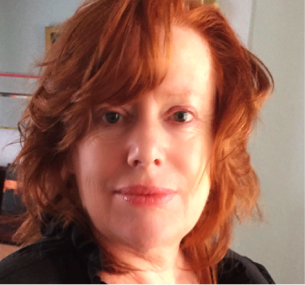 Barbara Fitzgerald is a registered Psychoanalyst, Psychotherapist, Trainer and Supervisor with a private practice in Dublin. Having worked in hospital, clinical and private institutions over a period of forty years, she has brought her clinical insights into her teaching in universities and educational Institutions in Ireland and in Europe and has presented at many conferences internationally, She has been involved with the design, delivery and recognition of many training courses for Psychoanalysts and Psychotherapists and has also worked as a training consultant to organizations and companies both in the private and public sectors in Ireland. She is past Chairperson of the Irish Council for Psychotherapy and is recent past Chairperson of the Psychoanalytic section of the ICP. She is a founder member of the European Confederation of Psychoanalytic Psychotherapists (ECPP) and its former President (2012-2016) and currently a Board member. She is an international expert for Psychoanalysis on the Training Standards Committee of the European Association for Psychotherapy (EAP).
Barbara Fitzgerald is a registered Psychoanalyst, Psychotherapist, Trainer and Supervisor with a private practice in Dublin. Having worked in hospital, clinical and private institutions over a period of forty years, she has brought her clinical insights into her teaching in universities and educational Institutions in Ireland and in Europe and has presented at many conferences internationally, She has been involved with the design, delivery and recognition of many training courses for Psychoanalysts and Psychotherapists and has also worked as a training consultant to organizations and companies both in the private and public sectors in Ireland. She is past Chairperson of the Irish Council for Psychotherapy and is recent past Chairperson of the Psychoanalytic section of the ICP. She is a founder member of the European Confederation of Psychoanalytic Psychotherapists (ECPP) and its former President (2012-2016) and currently a Board member. She is an international expert for Psychoanalysis on the Training Standards Committee of the European Association for Psychotherapy (EAP).
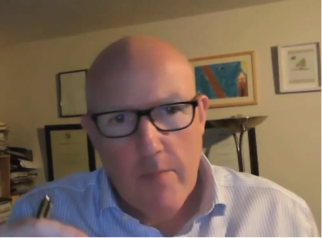 Paul Moore is a psychoanalytic psychotherapist, in private practice in Dublin, Carlow and Kilkenny. He is Assistant Professor in the Department of Psychiatry, School of Medicine, Trinity College Dublin and Course Director of the M.Sc. in Psychoanalytic Psychotherapy, and lecturers in Psychoanalysis and Neuropsychoanalysis in Trinity College and other third level educational institutes. Paul is a former Chair of the Irish Institute of Psychoanalytic Psychotherapy (IIPP), and is also a Training Analyst for the IIPP. He is a founding member and group leader of Neuropsychoanalysis Ireland. Paul is also an associate editor for the journal Neuropsychoanalysis. In addition to general practice in psychotherapy, Paul specialises in psychotherapy for people who have experienced a brain injury, people on the autistic spectrum, and collaborates with Professor Oliver Turnbull’s Emotion Research Lab at Bangor University North Wales, where the team are investigating the neural correlates of psychotherapy – in this context Paul has worked psychoanalytically, both long-term and short-term, with people who have profound amnesia as a consequence of a brain injury. Paul is also currently working and researching in the area of psychodynamic organisational consulting and psychodynamic executive coaching with The Centre for Leadership and Affective Neuroscience (C-LAN).
Paul Moore is a psychoanalytic psychotherapist, in private practice in Dublin, Carlow and Kilkenny. He is Assistant Professor in the Department of Psychiatry, School of Medicine, Trinity College Dublin and Course Director of the M.Sc. in Psychoanalytic Psychotherapy, and lecturers in Psychoanalysis and Neuropsychoanalysis in Trinity College and other third level educational institutes. Paul is a former Chair of the Irish Institute of Psychoanalytic Psychotherapy (IIPP), and is also a Training Analyst for the IIPP. He is a founding member and group leader of Neuropsychoanalysis Ireland. Paul is also an associate editor for the journal Neuropsychoanalysis. In addition to general practice in psychotherapy, Paul specialises in psychotherapy for people who have experienced a brain injury, people on the autistic spectrum, and collaborates with Professor Oliver Turnbull’s Emotion Research Lab at Bangor University North Wales, where the team are investigating the neural correlates of psychotherapy – in this context Paul has worked psychoanalytically, both long-term and short-term, with people who have profound amnesia as a consequence of a brain injury. Paul is also currently working and researching in the area of psychodynamic organisational consulting and psychodynamic executive coaching with The Centre for Leadership and Affective Neuroscience (C-LAN).
